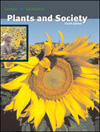 |
1 |  | 
1. Recent research suggests that the original use of spices was not for flavor but to inhibit food-borne bacteria, especially in warm climates where food spoilage was common. |
|  | A) | True |
|  | B) | False |
 |
 |
2 |  | 
2. Using the essential oils of menthol, eucalyptus, and sandalwood for medicinal purposes is called aromatherapy and is thought to trigger physiological responses. |
|  | A) | True |
|  | B) | False |
 |
 |
3 |  | 
3. _______ traveled through the Orient for 25 years and later published his memoirs, which described the immense wealth of spices in China, Java, and India. |
|  | A) | a. Alexander the Great |
|  | B) | b. Marco Polo |
|  | C) | c. Henry the Navigator |
|  | D) | d. Nero |
|  | E) | e. Christopher Columbus |
 |
 |
4 |  | 
4. During the sixteenth century, _______ controlled the spice trade between Europe and the Far East. |
|  | A) | a. Portugal |
|  | B) | b. England |
|  | C) | c. The Netherlands |
|  | D) | d. Italians |
|  | E) | e. None of the above |
 |
 |
5 |  | 
5. Allspice, capsicum peppers, and black pepper are all spices derived from the grinding of their bark |
|  | A) | True |
|  | B) | False |
 |
 |
6 |  | 
6. Which spice is derived by drying and grinding the unopened flower bud of the Eugenia caryophyllata plant? |
|  | A) | a. mace |
|  | B) | b. nutmeg |
|  | C) | c. cloves |
|  | D) | d. cinnamon |
|  | E) | e. black pepper |
 |
 |
7 |  | 
7. From which plant part are both ginger and turmeric derived? |
|  | A) | a. seeds |
|  | B) | b. leaves |
|  | C) | c. rhizome |
|  | D) | d. root |
|  | E) | e. bulb |
 |
 |
8 |  | 
8. Saffron is derived from the stigmas of an autumn crocus native to eastern Mediterranean countries and is considered to be the most costly spice in the world. |
|  | A) | True |
|  | B) | False |
 |
 |
9 |  | 
9. Capsicum anuum is the most widely cultivated pepper and is included in the tomato family. |
|  | A) | True |
|  | B) | False |
 |
 |
10 |  | 
10. Medicinal uses of the capsicum pepper include its use as ________. |
|  | A) | a. a diuretic |
|  | B) | b. an analgesic |
|  | C) | c. an ointment for burn victims |
|  | D) | d. all of the above |
|  | E) | e. only a and b are correct |
 |
 |
11 |  | 
11. The characteristic flavor of _________ is produced by a process in which beans are heated by the sun during the day and covered in blankets by night. |
|  | A) | a. coffee |
|  | B) | b. vanilla |
|  | C) | c. nutmeg |
|  | D) | d. all of the above |
|  | E) | e. none of the above |
 |
 |
12 |  | 
12. Imitation vanilla extract is synthesized from wood pulp and coal tar. |
|  | A) | True |
|  | B) | False |
 |
 |
13 |  | 
13. Allspice is used both whole and ground, and its cultivation and production are controlled by Jamaica. |
|  | A) | True |
|  | B) | False |
 |
 |
14 |  | 
14. Oregano, spearmint, rosemary, and sage all belong to the family ________. |
|  | A) | a. Apiaceae |
|  | B) | b. Brassicaceae |
|  | C) | c. Laminaceae |
|  | D) | d. Solanaceae |
|  | E) | e. Myrtaceae |
 |
 |
15 |  | 
15. The dry indehiscent fruit, the schizocarp, is found in plants of the family _______. |
|  | A) | a. Apiaceae |
|  | B) | b. Brassicaceae |
|  | C) | c. Laminaceae |
|  | D) | d. Solanaceae |
|  | E) | e. Alliaceae |
 |
 |
16 |  | 
16. Dijon mustard, which is ground black mustard mixed with white wine, is becoming increasingly popular as a sauce for sushi and other seafood dishes in Japan. |
|  | A) | True |
|  | B) | False |
 |
 |
17 |  | 
17. _______ produces a single large bulb, whereas _______ produces a composite bulb consisting of many bulblets. |
|  | A) | a. Wasabi, turmeric |
|  | B) | b. Onion, garlic |
|  | C) | c. Safflower, turmeric |
|  | D) | d. Logwood, Opuntia cactus |
|  | E) | e. Ginger, turmeric |
 |
 |
18 |  | 
18. Which of the following pairs of spices are obtained from the same plant? |
|  | A) | a. ginger, turmeric |
|  | B) | b. cinnamon, clove |
|  | C) | c. vanilla, saffron |
|  | D) | d. nutmeg, mace |
|  | E) | e. black pepper, capsicum pepper |
 |



 2006 McGraw-Hill Higher Education
2006 McGraw-Hill Higher Education

 2006 McGraw-Hill Higher Education
2006 McGraw-Hill Higher Education